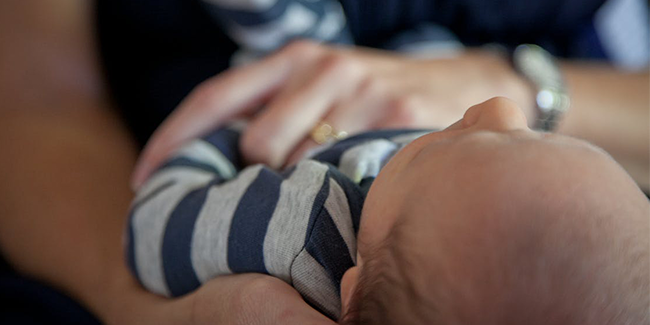More investment is needed to address variations in care experienced by women facing mental ill-health during pregnancy and after giving birth, a National Assembly committee has said. The Children, Young People and Education Committee also warned that the lack of specialist in-patient care within Wales for those with the most severe symptoms is unacceptable.

While the Committee welcomes the creation of specialist perinatal mental health teams to treat mothers in the community, it has recommended that more investment is needed to enable all community perinatal mental health services to be brought up to the standard of the best.
“It was very hard to get help when you’re mentally poorly. We are all in different geographical areas and the ways in which we all had to try to get help were completely different.”
Staci Sylvan from Carmarthenshire, who has experience of perinatal mental ill health and who gave evidence to the Committee’s inquiry.
“It’s very much a postcode lottery of where you are. North and west Wales don’t tend to do very well in terms of the services provided compared maybe to south Wales and Cardiff.”
Sally Wilson from Bangor, who has experience of using mental health services in Gwynedd, and who contributed evidence to the Committee’s inquiry
The majority of women experiencing perinatal mental illness can be cared for safely and effectively in the community, however those with the most severe symptoms require in-patient care in a specialist Mother and Baby Unit. The Committee heard evidence that while at least 50 to 80 women a year in Wales require admission, Wales’s only unit was closed in 2013. Since then, patients have travelled as far as Derby, London and Nottingham, or received treatment in an adult psychiatric unit, separated from their child.
Committee Chair Lynne Neagle said:
"We have heard from women, their families and from health professionals who have told us that mental health support for women giving birth in Wales needs to improve. It is estimated that perinatal mental ill health affects up to one in five women at some stage during their pregnancy or in the first year after childbirth with conditions ranging across a spectrum of severity.”
“For the majority of women, care in a community setting will be most appropriate. However there is still more to do to ensure that women who need specialist support in the community get the right care and we are committed to monitoring closely Welsh Government progress to ensure that services are as good as they can be.”
“For the minority of women with the most severe mental illness during pregnancy and after giving birth, access to a Mother and Baby Unit is key. We are pleased that our work to shine a light on this subject has already borne fruit, with the Welsh Government committing to develop specialist inpatient mental health support for new mothers within Wales. However, we believe that identifying a location for in-patient services that is suitable for women across Wales remains a challenge. While the birth rate in south Wales would sustain a specialist unit, this would not solve issues in north Wales. As such, we recommend the Welsh Government should work with NHS England as a matter of urgency to discuss options for the creation of a centre in north east Wales that could serve both sides of the border.”

Other recommendations from the Committee’s report include:
Prioritising the provision of rapid and timely access to psychological therapies for perinatal women given the established link between perinatal ill health and a child’s health and development. Within the next six months the Welsh Government should also outline how it expects the lack of psychological support for neonatal and bereaved parents to be addressed;
Raising awareness of perinatal mental health issues amongst the public and health professionals, to improve understanding of the symptoms and encourage the normalisation of talking about emotional well-being to reduce stigma and fear; and
Health Boards and the Welsh Government should work together to ensure that where women are referred to third-sector organisations, these services are properly funded to offer the support that is signposted.
Read the full report:
Perinatal mental health in Wales (PDF, 1 MB)

